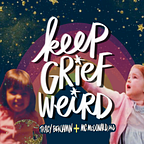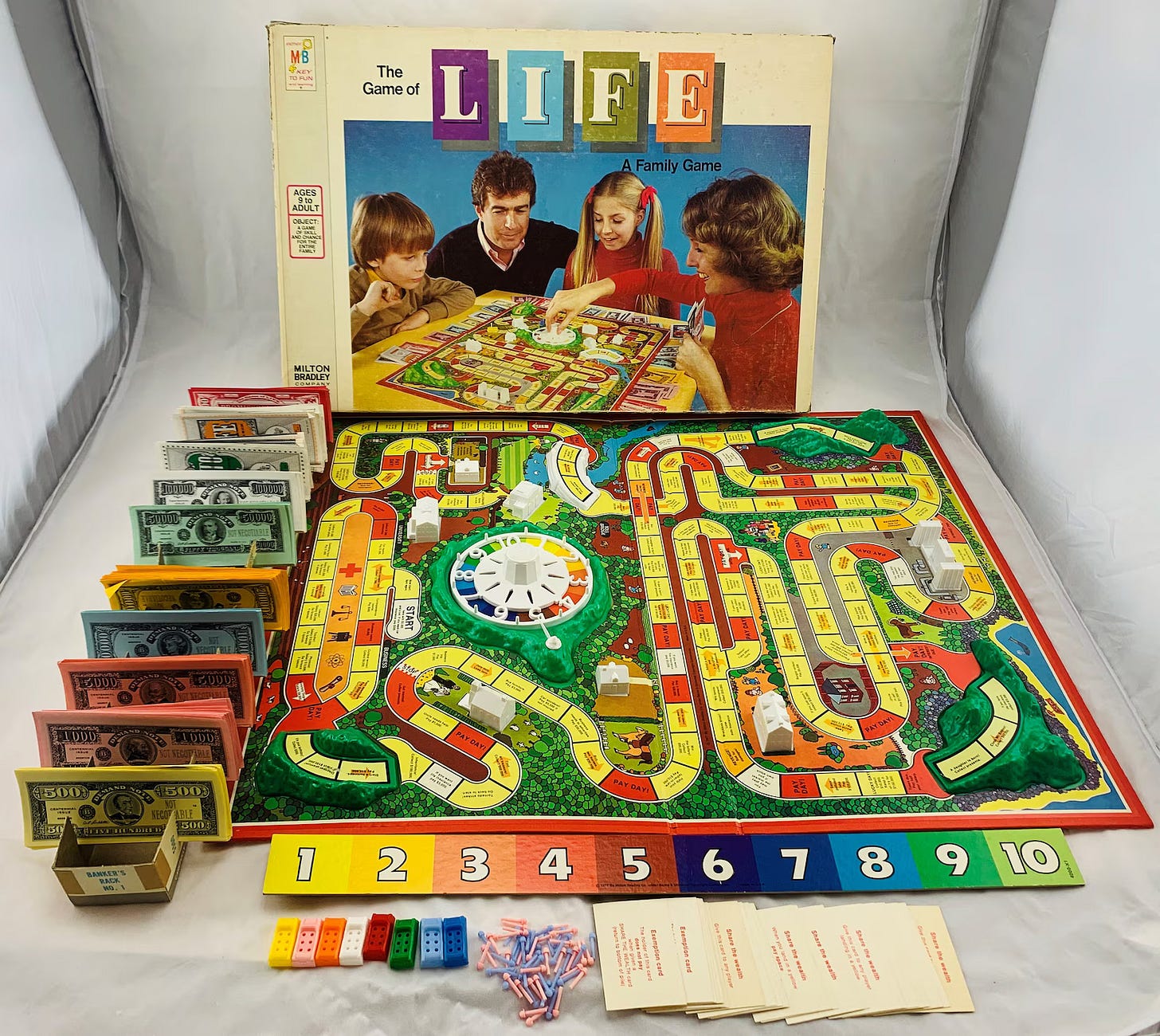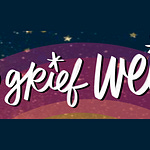Hi Friends, MC here. When I was in the seventh grade, my English teacher told me that I was a walking contradiction. To this day I have no idea what motivated her exasperated statement, and so I have no idea what she meant. I don’t even know if she meant it as a compliment. Context cues at the time told me that it was probably not a compliment. But! She’s probably long gone and I am going to choose to reclaim it and make it one. Because one of the very hardest things that we can do as human beings is to hold two contradictory things at the same time. Like the fact that your parents did the very best they could, and you didn’t get what you needed. Like the fact that you are relieved that your loved one is out of pain and miss them with each and every molecule in your body. Like the fact that you are really grateful for that friendship and what it taught you but also never ever want to see that person again.
I like to call this the both/and. The both/and is that place of tension between opposing truths often appears in the context of grief and emotional healing. Our brains very much like to make things clear and simple - and singular. So when something happens, our brains are quick to label it. This experience was good. This other one was bad. This one over here? Huge mistake. There’s the one that proves that I’m a failure. And although some things are clear and simple and singular, many many things are not. What is much more common is that a single experience is good and bad, beautiful and awful, frustrating and generative. Learning how to hold the two opposing labels helps us to heal and to integrate the experiences.
Sounds good, but how do we do that? I’m so glad you asked. Let me show you what this looks like.
Examples of the Both/And:
When we lose someone (or something), the temptation is to either lean into the strength and resilience on offer or to collapse into permanent sadness. The both/and answer tells you that you can (and should) do both:
Contradiction: "I am becoming a stronger person through my experiences," versus "I am profoundly sad about the loss I’ve endured."
Integration: It’s possible to recognize that personal growth can stem from challenging experiences while still feeling the deep sadness of the loss.
It can be really confusing when we recognize that two opposing things are true at the same time and this can make us get stuck. You might be angry at someone you’ve lost and also feel deep and sustaining love for them. It might feel like the town is simply not big enough for the both of you. The both/and answer says you get to have both:
Contradiction: "I love the person who has died" versus "I am angry at the circumstances or at them for leaving me."
Integration: Feelings of love and anger can coexist. Loving someone doesn’t exclude the possibility of feeling anger related to their absence or the situation surrounding their departure.
When it comes to the events and circumstances that we don’t choose - loss of a job or a pet or a loved one - it is super common to get super stuck in wishing that things were different, while feeling the pull to accept so that you can move on. Guess what the both/and answer is? You guessed it!
Contradiction: "I accept the situation as it is," versus "I wish things were different."
Integration: One can accept a situation as it stands but still wish for things to be different. Acceptance doesn’t negate the desire for change.
Dialectical Behavioral Therapy:
In my humblest opinion, DBT has kind of terrible marketing. It sounds clinical and arch and confusing and so do most of the tools it uses (behavior change analysis sounds like something you have to do once a year and dread like file your taxes). But it is a brilliant and fascinating modality that is so helpful I think it should be taught in middle school.
What the hell is it? Ok, stay with me.
DBT is a therapeutic modality built off of a model from philosophy (Hegel, to be exact). The idea was that when you had an idea and an opposing idea, if you put them together they would synthesize into a new idea that gives you a better understanding of whatever you are looking at and wouldn’t have existed if it weren’t for the opposition. So basically the both/and.
When DBT is applied to grief, it begins with the understanding that it is normal to hold conflicting feelings and that these can be integrated. There are (at least) three ways this is helpful.
Validation and Emotional Regulation: DBT helps individuals validate their emotions (e.g., sadness, anger, gratitude) and manage them effectively, acknowledging that it's okay to feel multiple things at once.
Balancing Acceptance and Change: In the context of grief, DBT supports the idea that one can accept the reality of the loss while still working towards personal growth and adjustment to a new life without the loved one.
Cognitive Flexibility: By teaching individuals to hold and integrate opposing truths, DBT encourages cognitive flexibility, which can be particularly useful in processing the complexity of grief.
So. Maybe I am a walking contradiction. And maybe that’s a good thing.
Weekly Nostalgia Nook:
I don’t know if you’ve noticed, but each episode we find ourselves wandering into some nostalgic corner and laughing about how things used to be. This is becoming a bit of a theme. This week we talked about life cereal, the game of life, and the show The Facts of Life.
The 80’s was such a weird time to be alive. Do you remember any of these oldies but goodies? What’s in your nostalgia nook?
Message us here or at keepgriefweird@gmail.com, and tag us on Instagram @keepgriefweird and use our hashtag- #keepgriefweird to share your weird griefy things!























